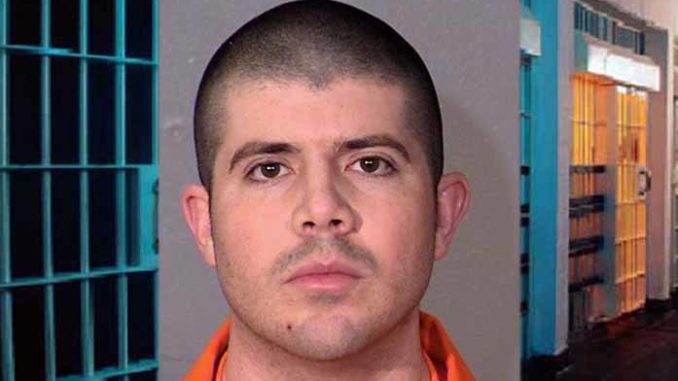
Two factual errors in the written record of a Pima County man’s conviction for assaulting the mother of his child must be corrected, but he has no grounds for an appeal, the Arizona County of Appeals announced last week.
Bryan Lee Lester, 29, was convicted by a Pima County Superior Court jury of assault, burglary, and aggravated assault by strangulation for a July 2017 domestic violence incident in which he beat the woman after entering her residence in violation of an order of protection. He was sentenced to eight years in prison after which an attorney was assigned to prepare an appeal.
However, Lester’s appellate attorney found no “meritorious issues to raise,” according to her filing with the court of appeals. A three-judge appellate panel then reviewed Lester’s case, viewing it “in the light most favorable to sustaining the jury’s verdicts.”
That review included a determination that “the evidence is sufficient” to uphold the convictions on appeal. But during the panel’s review of the case, two portions of the written record -called a minute entry- of the sentencing hearing didn’t match statements made at the time by Judge Teresa Godoy.
The errors in the minute entry included labeling the aggravated assault and burglary convictions as “non-repetitive” offenses even though the transcript of the sentencing hearing revealed Godoy characterized the aggravated assault and burglary as “repetitive” offenses. A similar error was made in labeling the assault offense.
As a result, the court of appeals corrected the written record even though the judges acknowledged the change are to Lester’s detriment. That’s because sentencing, release options, and in-prison risk assessments can be affected by the dangerous nature and repetitiveness of an inmate’s criminal history.
Public records show Lester was arrested shortly the assault, then was found guilty during a June 2018 trial. He was sentenced in February 2019 to two concurrent eight-year terms after the judge considered the fact Lester was previously convicted of at least two felonies.
Those priors include two drug offenses from 2011 and a 2012 conviction of negligent homicide for the 2009 shooting death of Christopher Lozano.
